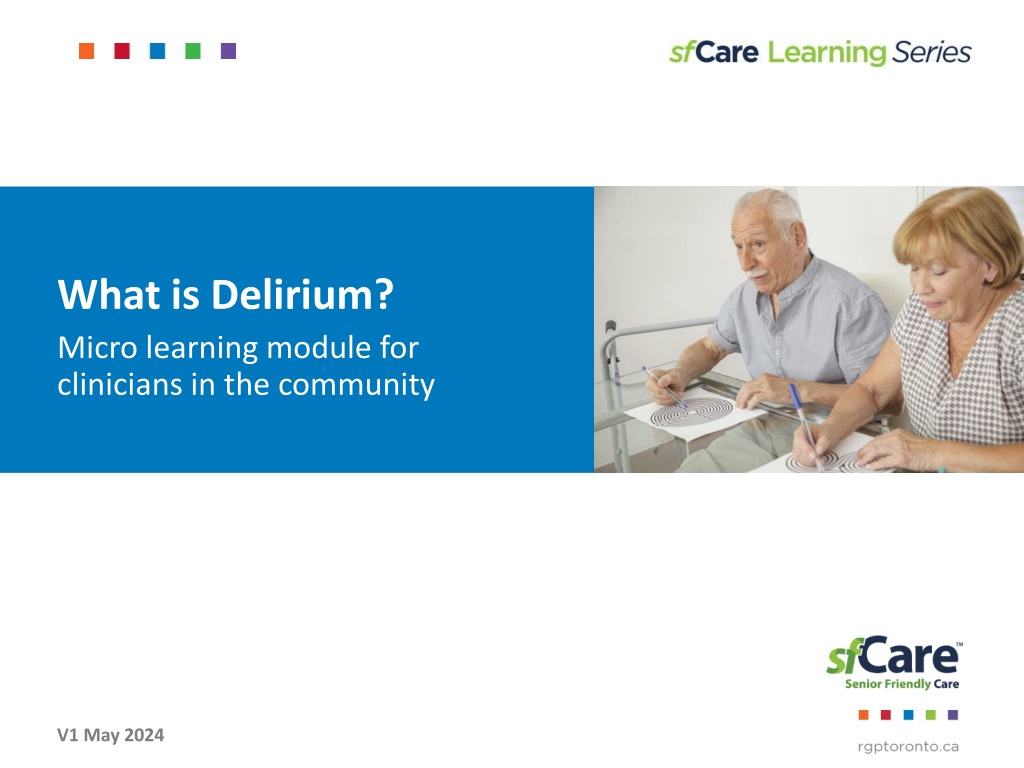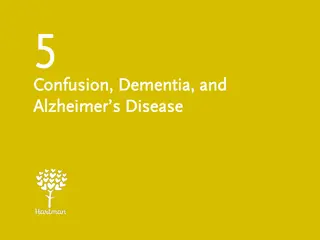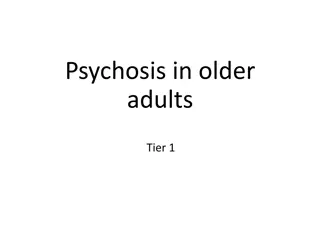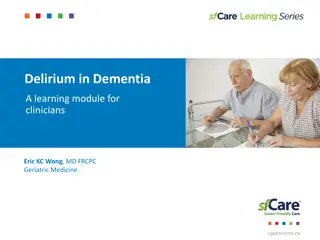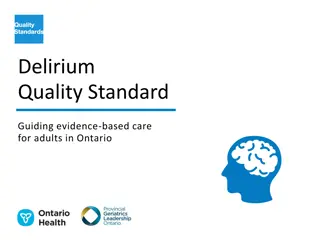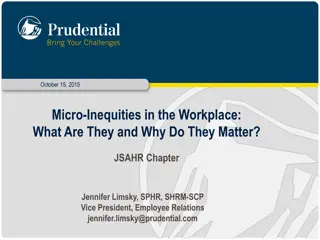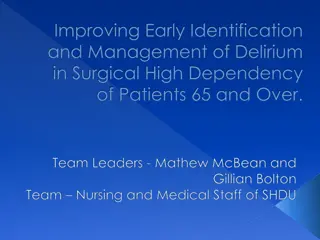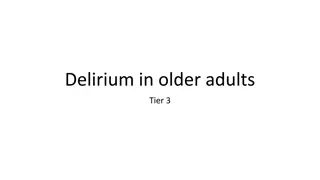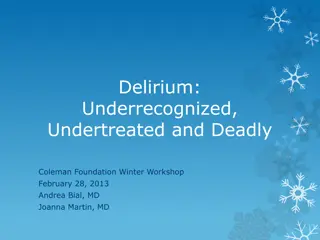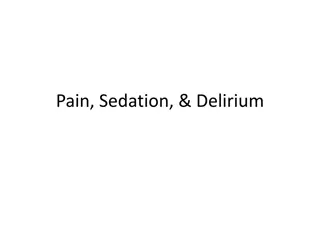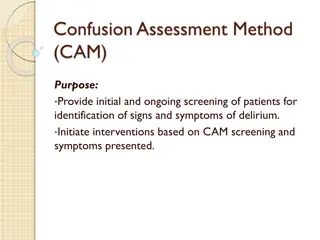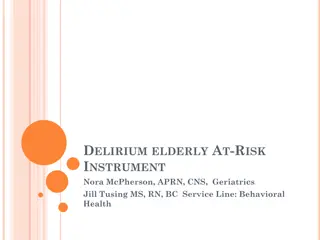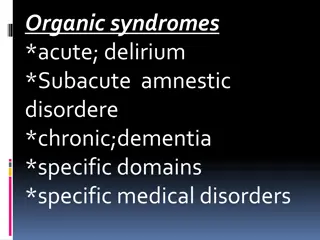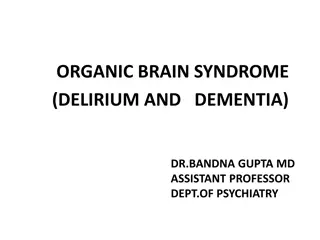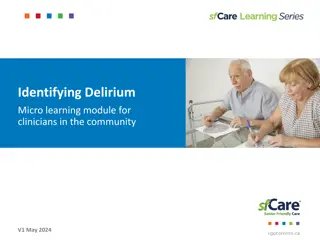Understanding Delirium: A Micro Learning Module for Clinicians
Delirium is a sudden change in an individual's memory, thinking, and behavior, which requires urgent medical attention. Often misdiagnosed, it can be mistaken for other conditions like depression or dementia. Knowing the signs and symptoms, such as fluctuating confusion, difficulty focusing, and changes in alertness, is crucial for prompt recognition and appropriate intervention. A case discussion highlights how delirium can manifest in individuals recovering from illnesses like pneumonia, emphasizing the importance of identifying key indicators like disorientation and sudden behavioral changes.
Download Presentation

Please find below an Image/Link to download the presentation.
The content on the website is provided AS IS for your information and personal use only. It may not be sold, licensed, or shared on other websites without obtaining consent from the author. Download presentation by click this link. If you encounter any issues during the download, it is possible that the publisher has removed the file from their server.
E N D
Presentation Transcript
What is Delirium? Micro learning module for clinicians in the community V1 May 2024
What is delirium? Deliriumis a sudden change in a person s: Memory Thinking Behaviour Delirium is an urgent medical situation! 2
More common than you might think! Delirium affects hundreds of thousands of community-dwelling older adults in Canada 3
Often misdiagnosed or not detected! Delirium can be mistaken for: depression dementia normal aging Delirium s key features: sudden change and fluctuating symptoms confusion difficulty focusing / paying attention change in level of alertness 4
Think delirium What should you do if an older adult has a sudden change in memory, thinking, or behaviour at home? They just don t seem like themselves Suddenly confused Unusually sleepy this morning Unable to pay attention 5
Know the signs and symptoms Symptoms often fluctuate. There may be periods during the day with no symptoms. Some of the signs and symptomsinclude changes in: Perception Emotion Thinking skills Behaviour Lack of concentration and getting distracted easily. Not being able to respond to a question by getting stuck on a thought or an opinion. Rapid and unpredictable mood changes Feeling depressed or euphoric without reason Poor recent memory Being disoriented to time and place Difficulty in comprehending speech, readings, and writings Hallucination (seeing things that do not exist) Delayed response and movement Significant changes in sleep habits 6
Case Discussion James has just returned from the hospital and is recovering from pneumonia. You speak to him and find him disoriented. He says, I want to leave this hotel! You learn from his daughter that he was fine this morning but then suddenly refused to eat his lunch. His gaze wanders without focus. As you offer him a glass of water, he drinks one sip and looks away. He is restless and wanting to get up and pace the hallways of his home. What signs of delirium did you notice? 7
Case Discussion: Answer Key Signs of delirium in James: Disoriented to where he is ( I want to leave this hotel ) Sudden change in how he normally behaves. His daughter says he was fine this morning but now he is refusing to eat lunch Unable to focus (wandering gaze without focus) Getting distracted easily (takes a sip of water and looks away) 8
Is it delirium? Delirium s key features are: sudden change and fluctuating symptoms confusion difficulty focusing / paying attention change in level of alertness They just don t seem like themselves Delirium is an urgent medical situation! Report your concerns to a family doctor or nurse practitioner promptly so that they can assess for delirium. 9
